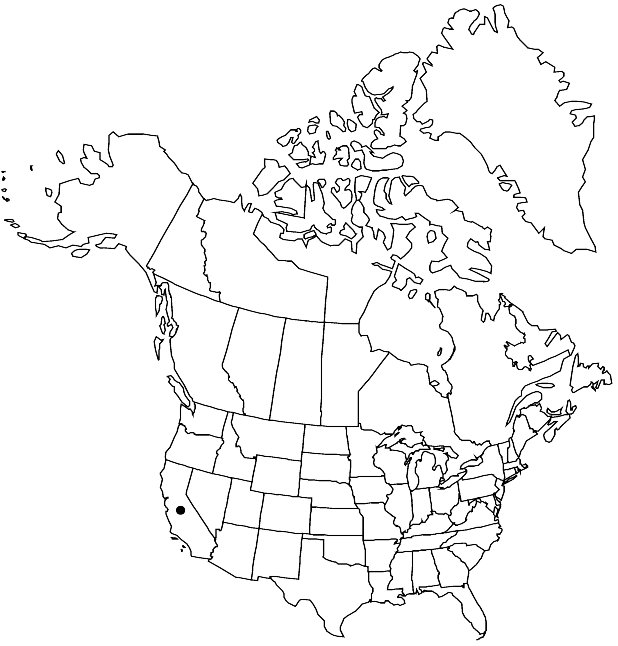Caulanthus coulteri
Botany (Fortieth Parallel), 27. 1871.
Annuals; usually hispid, rarely glabrous distally, (trichomes simple, stalked, or 2-rayed forked). Stems erect, usually branched distally, 1–16 (–25) dm, sparsely hispid basally. Basal leaves rosulate; petiole 0.3–5 cm; blade narrowly oblong to oblanceolate, 0.7–12 cm × 4–25 mm, margins pinnatifid to coarsely dentate-sinuate, (surfaces pubescent, trichomes simple and 2-rayed forked). Cauline leaves (median) sessile; blade lanceolate to linear-lanceolate, 1–18 (–26) cm × 3–35 (–45) mm (smaller distally, base amplexicaul), margins dentate or entire, (surfaces glabrous). Racemes (densely flowered), with a terminal cluster of sterile flowers. Fruiting pedicels reflexed or, rarely, spreading, 3–16 mm, usually pubescent, rarely glabrous. Flowers: sepals erect to ascending, (dark purple in bud becoming yellowish green with purplish or brown margins), ovate to narrowly lanceolate, 5–15 (–19) × 2–4.5 mm (subequal, keeled, glabrous or pubescent, trichomes simple and forked); petals white or purplish (with dark purple veins), 8–25 (–30) mm, blade 4–10 × 1.5–4 mm, crisped, claw oblanceolate, 4–12 × 2–2.5 mm; filaments in 3 unequal pairs, abaxial pair 3.5–8.5 mm, lateral pair 1.5–7 mm, adaxial pair (connate), 5.5–11 mm; anthers oblong to linear-oblong, unequal, 1–5 mm, (adaxial pair smaller). Fruits usually reflexed, rarely divaricate (often straight), terete or slightly latiseptate, 3.5–15 cm × 2.2–3.5 mm; valves each with prominent midvein basally; ovules 70–96 per ovary; style 0–4 mm; stigma strongly 2-lobed (lobes 0.5–1.5 mm, opposite valves). Seeds 1.5–3.5 × 1.5–2.2 mm, (cotyledons deeply 3-fid). 2n = 28.
Phenology: Flowering Mar–Jun(-Jul).
Habitat: Grasslands, scrub, woodlands, chaparral
Elevation: 100-2100 m
Discussion
Caulanthus coulteri is highly variable in almost every morphological character. For a discussion of its limits, see 14. Caulanthus lemmonii. It is known from central and southern California.
Selected References
None.
Lower Taxa
"elongated" is not a number."thick" is not a number."dm" is not declared as a valid unit of measurement for this property."dm" is not declared as a valid unit of measurement for this property.
